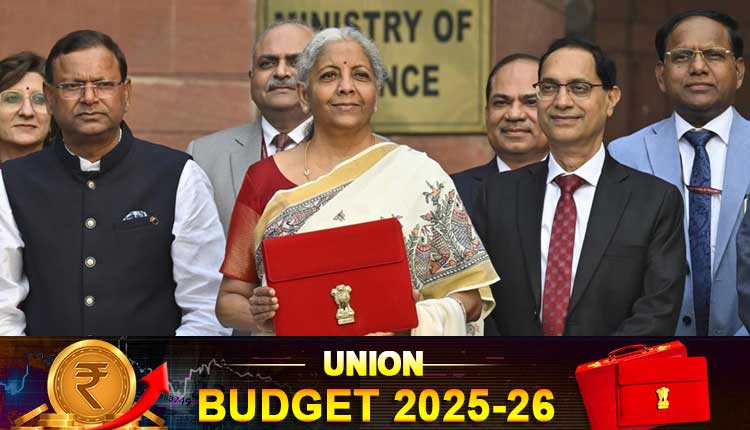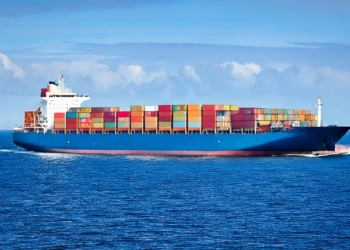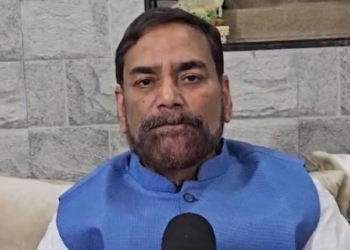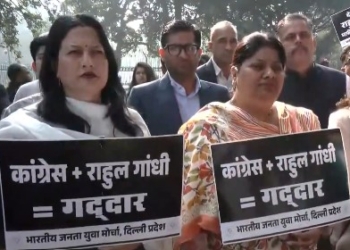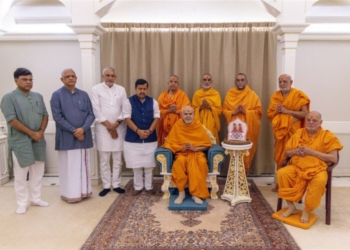New Delhi: The Ministry of External Affairs (MEA) has allocated Rs 5,483 crore for aid to foreign nations, slightly higher than last year’s Rs 4,883 crore, it was announced in the Union Budget 2025-26 on Saturday.
The MEA has been allocated Rs 20,516.61 crore, which is lower than the revised estimate of Rs 25,277 crore for 2024-25.
As much as Rs 6,750 crore constitutes the Overseas Development Assistance portfolio, which is up 20 per cent from last year’s Rs 5,667.56 crore. This includes a budget for soft loans, grants for foreign countries, funding for cultural and heritage projects, and international training programmes.
As much as 64 per cent of the Rs 4,320 crore allocated for development schemes will go to India’s immediate neighbours in keeping with demand-driven projects. These range from big infrastructure projects like hydropower plants, power transmission lines and integrated check posts to small grassroots community development projects and training programmes.
Bhutan, arguably India’s closest partner, gets the biggest share of the external aid budget with Rs 2,150 crore. The previous year’s revised outlay stood at Rs 2,543.48 crore.
The allocation is in tune with India’s ‘Neighbourhood First’ policy, which lays emphasis on regional development and connectivity.
India last year announced the doubling of its financial support for Bhutan’s five-year plans from Rs 5,000 crore to Rs 10,000 crore.
One of the key highlights in the Budget has been the continuance of Rs 100 crore for the development of Chabahar Port in Iran with a strategic eye on regional connectivity, especially the International North-South Transport Corridor (INSTC).
This comes after a 10-year agreement, which India signed with Iran for operations at the Shahid Beheshti terminal and an investment of $120 million for port infrastructure development.
Maldives, on the other hand, has received the maximum increase in assistance, from Rs 470 crore in the revised 2024-25 budget to Rs 600 crore in 2025-26.
The hike is over and above the financial assistance provided by India to the island nation to overcome its balance of payments crisis in 2024.
While the Indian government resubscribed to these bonds and decided, on other help, the Maldives government was not in a stable condition to reach economic and security cooperation with China.
While keeping Nepal and Bangladesh with the budget allocations of Rs 700 crore and Rs 120 crore individually, the island nation of Mauritius has experienced a reduction to Rs 500 crore as against Rs 576 in the previous term.
Sri Lanka also gets the same amount as last year, which is Rs 300 crore.
Myanmar’s allocation too has been reduced from Rs 400 crore to Rs 350 crore while Seychelles’ aid has been reduced from Rs 37 crore to Rs 19 crore.
Afghanistan’s aid, which was cut from Rs 100 crore to Rs 50 crore in the revised 2024-25 Budget, has been restored to Rs 100 crore.
While the allocation for African countries has gone up from Rs 200 crore to Rs 225 crore.
The assistance grants for countries in Eurasia and Latin America have been doubled to Rs 100 crore.
Disaster relief has gone up from Rs 60 crore to Rs 64 crore, reflecting India’s proactive role in global humanitarian responses.
Bigger outlay for diplomatic missions and citizen services
The Budget also provides for the expansion of India’s diplomatic reach. The allocation for Indian embassies and missions abroad has been increased by 9 per cent to Rs 4,206.22 crore, following the establishment of ten new diplomatic posts in 2024-25.
Moreover, the allocation for citizen-centric services, including passport issuance and implementation of the Passport Seva Project 2.0, has almost been doubled from Rs 1907.24 crore in 2024-25 to Rs 1,913.47 crore in 2025-26.
This includes allocation for the Indian Council of Cultural Relations, the South Asian University, and other international engagements. However, the specific outlay for EXIM Bank provisioning is not provided in this paper, and officials say that will be provided dynamically with regard to need.
India’s focus on ‘Vishwa Bandhu’ with ‘Neighbourhood First’ and ‘Look East’ policies underlines its commitment to strong regional bonds, the nurturing of key allies, and the expansion of its global development footprint.
(IANS)




